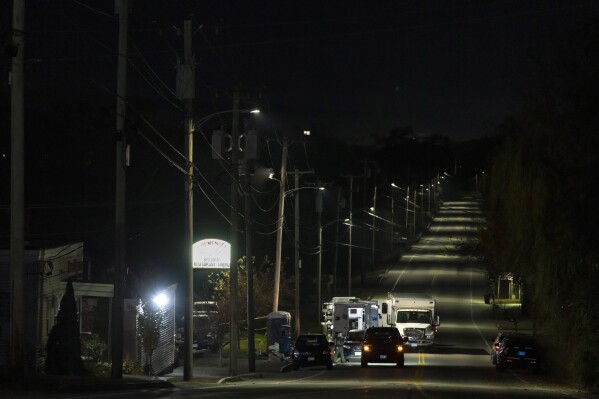Lawsuits target Maine referendum aimed at curbing foreign influence in local elections
PORTLAND, Maine (AP) — Two utilities and two media organizations are suing over a referendum in Maine that closed a loophole in federal election law that allows foreign entities to spend on local and state ballot measures.
The three lawsuits take aim at the proposal overwhelmingly approved by voters on Nov. 7 to address foreign election influence.
The Maine Association of Broadcasters and Maine Press Association contend the new law imposes a censorship mandate on news outlets, which are required to police campaign ads to ensure there’s no foreign government influence.
Meanwhile, Central Maine Power and Versant, the state’s largest electric utilities, each filed separate lawsuits raising constitutional challenges that contend the referendum violates their free speech and engagement on issues that affect them.



The Maine Commission on Government Ethics and Campaign Practices is studying the federal complaints filed Tuesday and consulting with the attorney general, Jonathan Wayne, the commission’s executive director, said Wednesday in an email.
The attorney general’s office declined comment.
The referendum, which was approved by about 84% of voters who cast ballots, bans foreign governments — or companies with 5% or more foreign government ownership — from donating to state referendum races.
The proposal was put on the ballot after a Canadian government-owned utility, Hydro Quebec, spent $22 million to influence a project on which it’s a partner in Maine. That hydropower corridor project ultimately moved forward after legal challenges.
But there are implications for Maine-based utilities, too.
The law applies to Versant because it’s owned by the city of Calgary in Alberta, Canada, but it’s unclear whether it applies to Central Maine Power.
CMP’s corporate parent Avangrid narrowly missed the cutoff by one measure. It is owned by a Spanish company — not the government — and minority shareholders owned by foreign governments, Norway’s central bank Norges Bank and the government-owned Qatar Investment Authority, together fall below the 5% threshold.
But Qatar Investment Authority also has an 8.7% minority stake in Spain-based Iberdrola, which owns Avangrid and CMP, and that’s part of the reason CMP argues that the law is unconstitutionally vague.
Before the Maine proposal went to voters it was vetoed by Democratic Gov. Janet Mills, who cited concerns about the proposal’s constitutionality and said its broadness could silence “legitimate voices, including Maine-based businesses.”
Federal election law currently bans foreign entities from spending on candidate elections, but allows such donations for local and state ballot measures.
Maine was the 10th state to close the election spending loophole when the referendum was approved, according to the Campaign Legal Center in Washington, D.C., which supported the Maine proposal.
___
Follow David Sharp on X, the platform formerly known as Twitter, @David_Sharp_AP
Disclaimer: The copyright of this article belongs to the original author. Reposting this article is solely for the purpose of information dissemination and does not constitute any investment advice. If there is any infringement, please contact us immediately. We will make corrections or deletions as necessary. Thank you.






